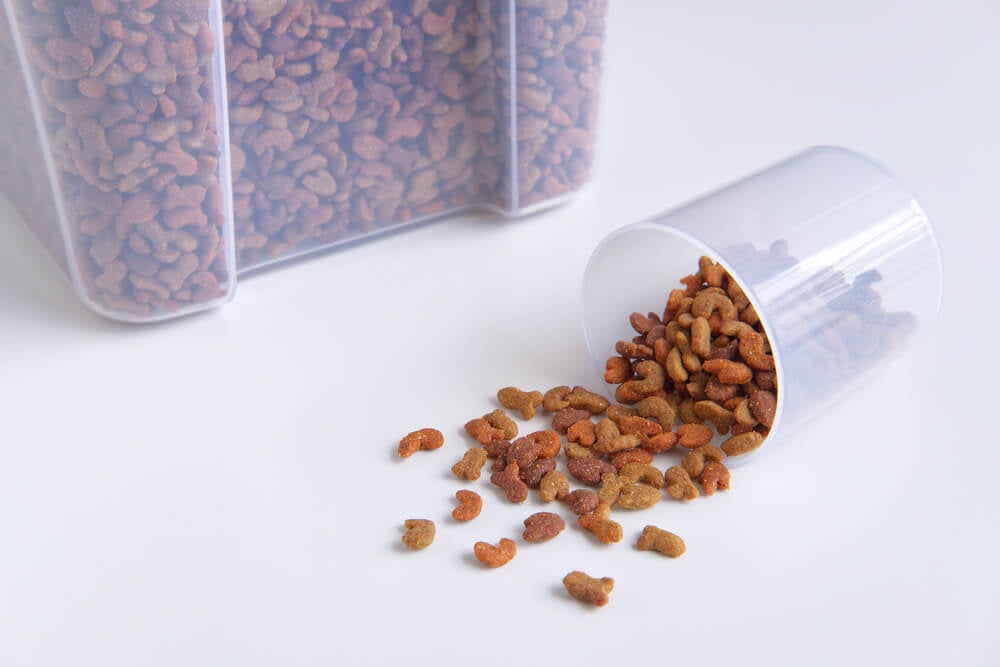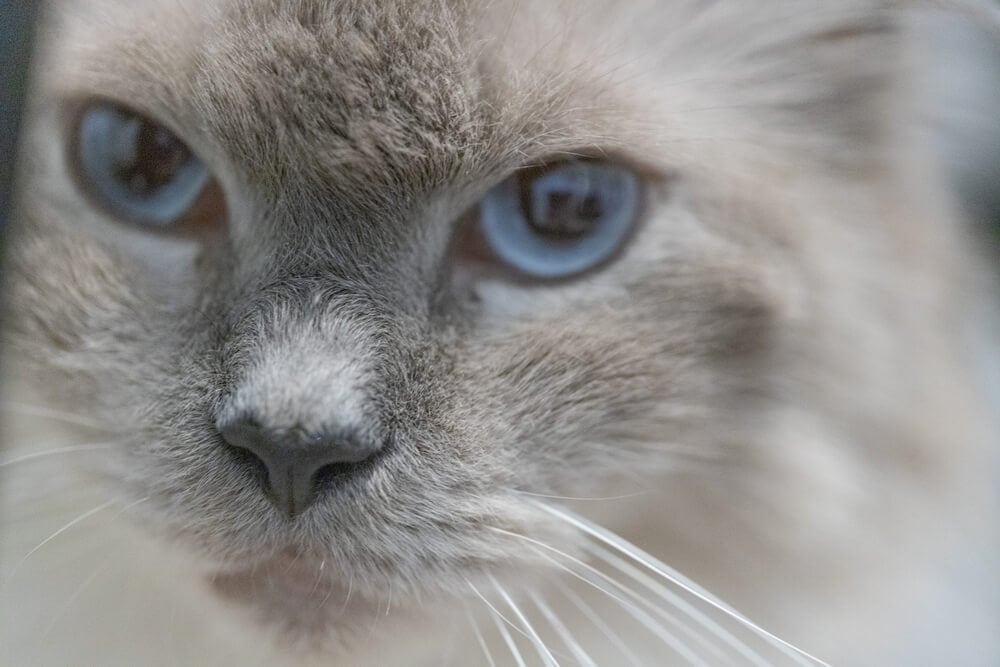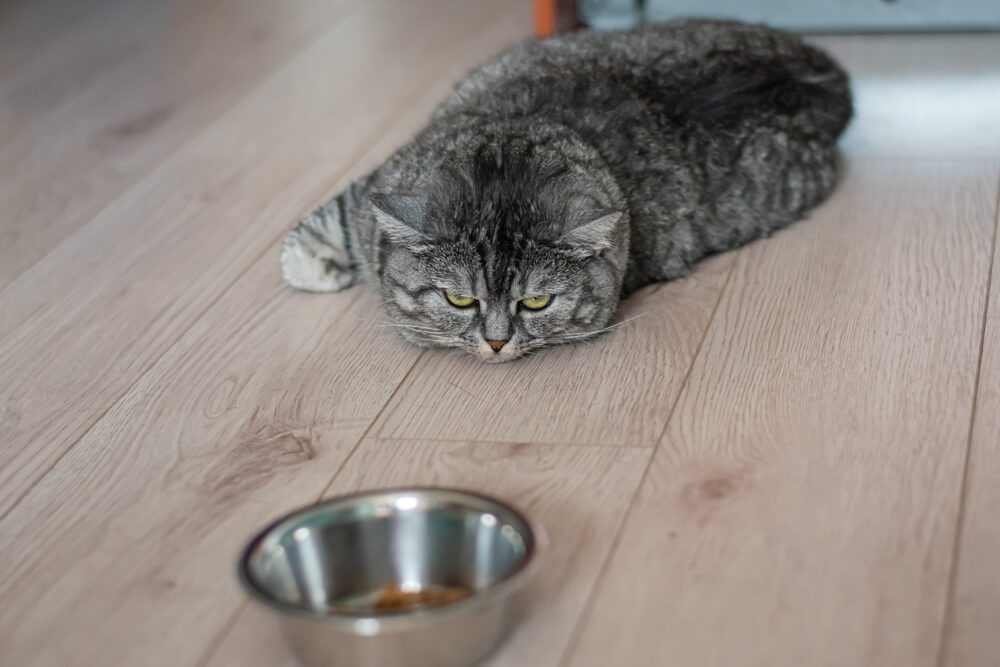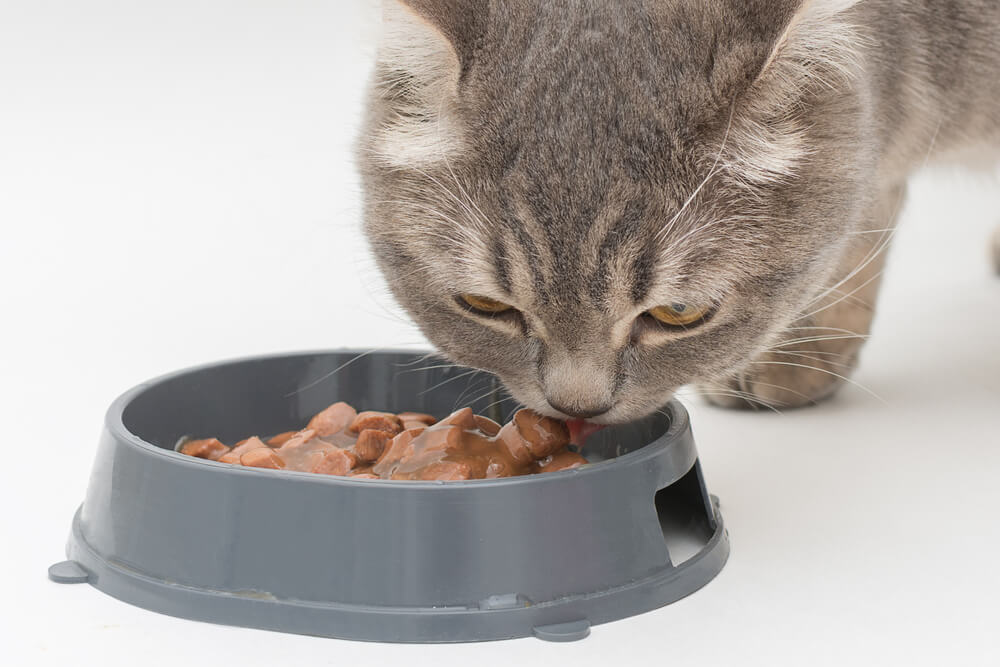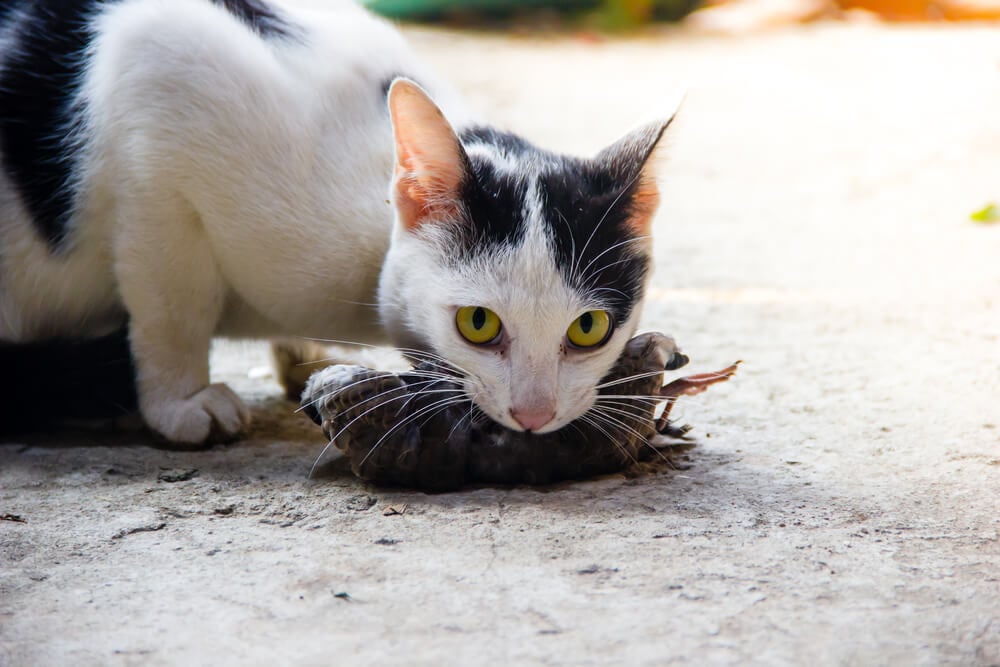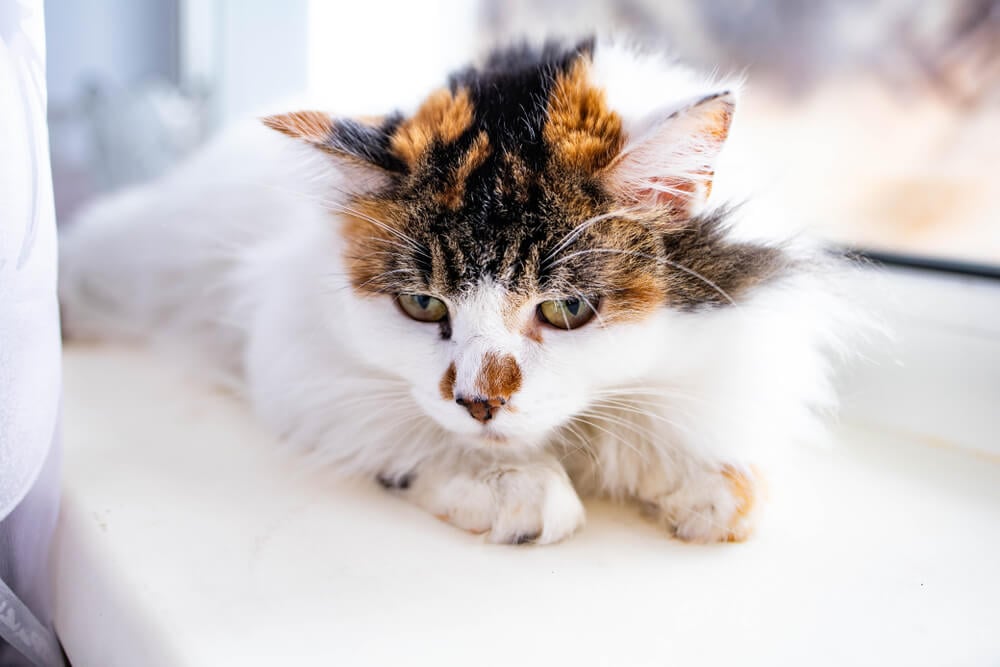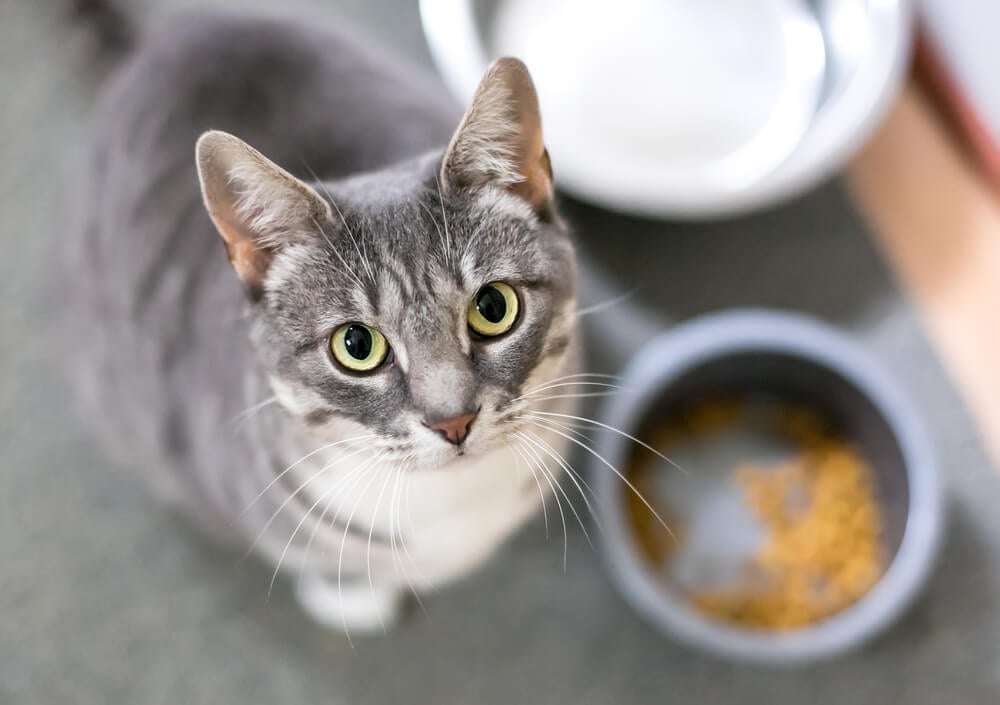
If your cat’s always hungry, you’re not alone — every cat parent knows that feeling. It’s a similar situation if you have teenagers — they just never seem to be full. Feed them dinner, and they are instantly asking for snacks. And let’s be honest, sometimes, your furry companion’s extra-wide begging eyes are hard to resist.
But it’s not always easy to tell if your cat is eating enough, if you’re giving your cat enough food, or too much. After all, who doesn’t enjoy snacking? Even our furry companions will eat all the time if they are offered food and snacks. So if they’re meowing constantly, even after being fed, is it a sign they’re still hungry?
How much food should my cat eat in a day?
Knowing how much to feed your cat is not straightforward. The food you feed your cat will feature a serving guide on the packaging, so you can roughly tell how much to serve them per meal/day, based on their weight. This will cover the basics and will mean your cat should be getting enough food.
However, as every cat is individual and has different needs and requirements, this may not be an entirely accurate guide. Your cat could be an extremely active outdoor cat, for example, and be burning more calories than an older indoor cat who enjoys sleeping, and therefore require more food even though they might be the same weight. Their breed, size and weight can also play a role in how much food they need on a daily basis.
How often should I feed my cat?
This is a topic of hot debate. The general guidance is that you should give your cat a minimum of two meals a day. Some cats like to graze on food left out all day, others won’t touch food that’s been left out and instead wolf down the meals you leave out, so it will depend on your cat’s preference.
If you’re finding it tricky to keep to just two portions a day, an electronic automatic feeder can help. Its settings mean you can program it to release two main meals a day, or more regular snack-size meals if that’s the preference, giving you control over your feeding, especially if you’re out of the house.
Establishing a feeding routine
It’s important to create a routine with your cat, especially in terms of the time of day that you feed them. Cats thrive on routine, and can become stressed if this routine is disrupted. Consistency is key if your cat is not eating: keep to a schedule and your cat will know when to expect food, meaning there’s less chance that they beg for food throughout the day.
If your cat bolts down their food, it could be a sign you’re not feeding them enough. It could also simply be the sign of a greedy cat, or a concern that a rival animal is going to steal their food if they’re not quick. If they eat quickly, it’s not advised to give them extra food straight after, as it’s rewarding begging behavior and interfering with portion size. Try to work out if it’s genuine hunger or simply begging.
If your cat’s appetite has led to them becoming overweight, you may think they look cute and cuddly, but being overweight can lead to health issues including arthritis and even early death. This is another reason why it’s important to ensure you’re feeding your furry friend the correct portion size.
Could my cat have a medical issue that’s causing excessive hunger?
Constant hunger could indicate an underlying medical issue. A number of conditions are linked to excessive hunger in cats. These can include parasites, such as tapeworms, which, if present, absorb nutrients meant for your cat. This issue can usually be solved via medication from your vet.
Other medical issues can include hyperthyroidism, where an overactive thyroid can make your cat burn more energy and therefore increase hunger, and diabetes. Other symptoms associated with diabetes include higher-than-normal levels of thirst and urination, along with weight loss and lethargy.
If you think your cat is suffering from a medical condition that is making them more, or less, hungry than normal, see your veterinary surgeon immediately so they can do a full assessment.
Does my cat have a sensitive stomach?
If your cat is struggling to eat all the food you give them at meal times, and is vomiting afterwards, it could be a sign that the food you’re providing doesn’t agree with their stomach, or they might even have an allergy. It could also be a sign that they are a picky eater.
If this is the case, try switching their food for a different type or brand. Higher quality food will provide more nutrients and vitamins for a balanced diet. If they’re on a kibble or wet food diet, it’s worth making the switch to a raw food diet to see if that helps their stomach and results in them eating the right amount of food.
Ultimately, feeding your cat a balanced, nutritious diet with the right amount of lean protein, fiber and carbohydrates will result in your cat being fuller for longer. For most cats, this will mean ensuring they get a good mix of red meat, poultry, fish, grains, and vegetables.
If you switch them to a more nutritious diet and they remain hungry all the time, we’d advise taking them to the vet, who will be able to investigate the cause of the hunger to determine if there’s an underlying issue.
We uphold the highest editorial standards when creating the authoritative content pet parents rely on and trust.
Every piece of clinical content on the Cat Food Advisor is reviewed by our certified Veterinary Advisory Board, which consists of licensed veterinarians and medically certified specialists.
Our reviews are completely independent; we are not paid by any pet food company to promote their products favorably. We do not accept money, gifts, samples or other incentives in exchange for special consideration. For more information see our Disclaimer & Disclosure page.




